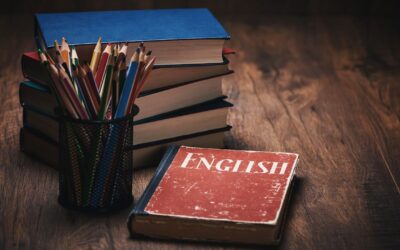Introduction
Learning a new language can be a daunting task, especially when it comes to acquiring a large vocabulary. It can be difficult to remember all the new words, especially when they seem so different from the words you already know. One effective tool for learning vocabulary is flashcards. In this article, we will discuss the benefits of using flashcards to learn vocabulary, and how to make the most of this tool.
What are flashcards?
Flashcards are a tool used to aid memorization. They are typically small cards with a word or phrase on one side and its definition on the other. Flashcards can be used to learn any type of information, but they are particularly useful for learning vocabulary.
Benefits of using flashcards to learn vocabulary
· They are portable
One of the biggest benefits of using flashcards is their portability. You can take them with you anywhere, and study them whenever you have a few spare minutes. Whether you’re waiting for a bus, standing in line at the grocery store, or sitting in a waiting room, you can use that time to study your flashcards.
· They are easy to use
Flashcards are very easy to use. You don’t need any special equipment or technology, and you don’t need to be in a particular place to use them. All you need is a set of cards and a willingness to learn.
· They are customizable
Another benefit of flashcards is that they are customizable. You can make your own flashcards, which allows you to tailor your study materials to your own needs. For example, you might make flashcards that focus on the vocabulary used in a particular book or movie.
· They promote active recall
Flashcards promote active recall, which is the process of recalling information from memory. When you use flashcards, you are forced to actively recall the information, which helps you remember it better. This is more effective than passive learning, where you simply read or listen to the information.
· They are efficient
Flashcards are a very efficient way to learn vocabulary. They allow you to study a large amount of information in a short amount of time. This is because you can quickly go through a deck of cards, focusing only on the words you don’t know.
· They are versatile
Flashcards are a versatile tool that can be used in a variety of ways. For example, you can use them to study alone or with a partner. You can also use them to play games, such as memory or matching games.
How to use flashcards effectively
· Start with a small deck
When you first start using flashcards, it’s best to start with a small deck. This will help you avoid feeling overwhelmed and ensure that you are able to focus on the words you don’t know.
· Use them regularly
To get the most out of your flashcards, you should use them regularly. Set aside some time each day to study your cards. This will help you build your vocabulary more quickly and effectively.
· Focus on the words you don’t know
When using flashcards, it’s important to focus on the words you don’t know. This will help you make the most progress in the shortest amount of time. If you already know a word, you can skip it or quickly review it to reinforce your memory.
· Use them in different ways
To keep your flashcard practice interesting, try using them in different ways. For example, you might use them to play a game with a friend, or you might practice using the words in a conversation.
· Use images
Using images on your flashcards can be a helpful way to reinforce your memory. For example, you might use a picture of a dog to help you remember the word “canine.”
Conclusion
In conclusion, using flashcards is an effective and efficient way to learn vocabulary. Flashcards are portable, easy to use, customizable, promote active recall, versatile, and efficient. To use flashcards effectively, it is important to start with a small deck, use them regularly, focus on the words you don’t know, use them in different ways, and use images to reinforce your memory.
Using flashcards can help you build your vocabulary quickly and effectively. However, it is important to remember that flashcards should be used as a supplement to other language learning activities, such as reading, writing, listening, and speaking. By using flashcards along with other language learning activities, you can maximize your learning and achieve your language learning goals.
Keywords:
- Flashcards: a tool used to aid memorization, typically small cards with a word or phrase on one side and its definition on the other
- Portability: the ability to be easily carried or moved
- Customizable: able to be modified or tailored to suit individual needs or preferences
- Active recall: the process of recalling information from memory
- Passive learning: learning through reading or listening without actively recalling the information
- Efficient: achieving maximum productivity with minimum wasted effort or expense
- Versatile: able to adapt or be adapted to many different functions or activities
- Memorization: the process of committing something to memory
- Set: a group of items that belong together, often used in reference to a set of flashcards
- Progress: forward or onward movement toward a destination or goal
- Reinforce: strengthen or support something, often used in reference to memory
- Supplement: something added to complete or enhance something else












0 Comments
Trackbacks/Pingbacks